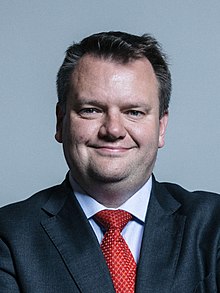Nick Thomas-Symonds – 2020 Speech on UK Telecommunications
Below is the text of the speech made by Nick Thomas-Symonds, the Shadow Solicitor General for England and Wales, in the House of Commons on 28 January 2020.
I am grateful to the Foreign Secretary for his statement and for giving me advance sight of it.
I am pleased that the Government have finally set out the conclusions of the telecoms supply chain review in relation to high-risk offenders after far too long a period of dither and delay. As the Intelligence and Security Committee made clear in July of last year, this debate has been unnecessarily protracted and damaging. A decision was required urgently so that everyone concerned can move forward. Our telecoms sector, businesses and households need clarity and certainty to move forward; leaks, rumour and confusion on this simply cannot continue.
The safety and security of our critical national infra- structure is crucial. Robert Hannigan, the former head of GCHQ, has said that decisions about providers should be made on
“technical expertise and rational assessment of risk”,
and I agree. It is for the Government to consider the best expert security advice they are given, and act upon it. Ministers should have robustly investigated the risk posed to our critical national infrastructure. I appreciate the confidentiality of National Security Council meetings, but I hope the Foreign Secretary can provide a firm assurance that that is the case.
Guarantees about the safety and security of the network going forward are now absolutely crucial if Huawei is to be involved in building the 5G network. It is for Ministers to make decisions in our national interest now and going forward, and never to be held hostage by shifting transatlantic geopolitics. A rush by the Government to throw themselves into the arms of President Trump to secure a trade deal must not govern everything they do. There is a wider point here. As we assess potential risks to our critical national infrastructure, whether from Huawei or anywhere else, we should ensure that the UK network is constructed in such a way that it is in the best possible condition to withstand attacks, wherever they come from. Resilience in the network is essential, irrespective of this decision or decisions about any other 5G provider. I hope the Foreign Secretary will provide reassurance on that.
Huawei is already embedded in the 4G network, but there is a wider question. After a decade of successive Conservative Governments, we do not have our own capacity to secure our critical national infrastructure and security, rather than relying on other countries. As I think the Foreign Secretary conceded, the UK has been left to choose between just three 5G vendors. What will the Government do to support local manufacturing and our own tech sector in growing businesses that can secure our critical national infrastructure? I have heard his words today about market diversification, but they are not enough. The Government need to act.
5G will have an extraordinary impact on our day-to-day lives. It is transformational, with faster data speeds, higher capacity and faster responsiveness. The majority of our constituents now have access to a large number of smart devices. Every year that number is growing, and the 5G network will have the advantage of being able to cope with that growing capacity. 5G will shape the economy of the future. Innovative technologies of the future rely on its development, and it must progress speedily.
The Government’s original announcement that the UK would be a global leader in 5G was back in 2017. The Government also set a target of the majority of the population being covered by a 5G signal by 2027. In his statement, the Foreign Secretary committed to securing national coverage of gigabit-capable broadband by 2025. Those targets have to be met. The UK is already way too far behind in its digital infrastructure, and we need to act fast. In September 2019, about 10% of premises in the UK—3 million premises— had access to full fibre. In France, 38% of households have access. In Spain, it is 77%. In Portugal, it is 70%. It is simply not good enough. It is letting all our constituents and businesses down, and the Government have to do more.
Moving forward, I would be grateful if the Foreign Secretary responded to the following points. Given the concerns expressed by our Five Eyes partners, if Huawei is to be deemed a high-risk vendor, will the Foreign Secretary again be as transparent as he can be and make clear how the decision will not bring about risk to communication channels that are used for intelligence sharing? Will he explain how the controls on how high-risk vendors are deployed will work? How durable is the barrier between core and periphery in the 5G network, and how will that be overseen? He mentioned the Huawei cyber-security evaluation centre oversight board, and more detail on how that will work would be appreciated.
The Intelligence and Security Committee’s statement on 5G suppliers of July last year set out that the Government must assume all worst-case security scenarios and protect the network accordingly. Will the Foreign Secretary confirm that such contingency planning is taking place? Finally, will he also confirm when the world-leading regulations he talked about will be brought before the House?
The public deserve a durable, secure and reliable 5G network for the future to ensure that our economy moves forward. The Government’s decision today is a small step in a very long process. They can be assured that we will hold them to account on the delivery of a secure, world-class service for all our constituents.

